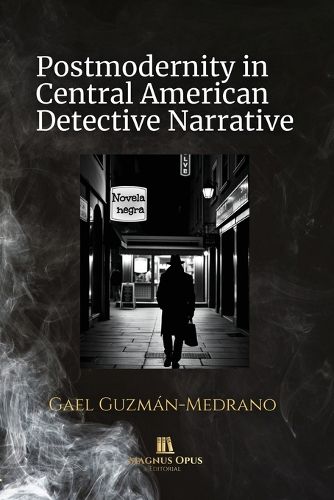Readings Newsletter
Become a Readings Member to make your shopping experience even easier.
Sign in or sign up for free!
You’re not far away from qualifying for FREE standard shipping within Australia
You’ve qualified for FREE standard shipping within Australia
The cart is loading…






The literary projects of Sergio Ramirez (Nicaragua) El cielo llora por mi, Dante Liano (Guatemala) El hombre de Montserrat, Horacio Castellanos Moya (El Salvador) El arma en el hombre and La diabla en el espejo, and Ramon Fonseca Mora (Panama) El desenterrador, are representative of the latest trends in Central American narrative. These trends conform to a new literary paradigm that consists of an amalgam of styles and discourses, which combine the testimonial, the historical, and the political with the mystery and suspense of noir thrillers. Contemporary Central American noir narrative depicts the persistent war against social injustice, violence, criminal activities, and the new technological advances and economic challenges of the post-war neo-liberal order that still prevails throughout the region. Drawing on postmodernism theory proposed by Ihab Hassan, Linda Hutcheon and Brian MacHale, the new Central American literary paradigm exemplified by Ramirez, Liano, Castellanos Moya, and Fonseca Mora are highly structured novels that display the characteristic marks of postmodern cultural expression through the coexistence of multiple styles, conflicting ideologies, and narrative trends. The novels analyzed portray the events that shaped the modern history of the countries from which they emerge. The revolutionary armed struggle, the state of terror imposed by military regimes and the fight against drug trafficking and organized crime, are among the major themes of these contemporary works of fiction, perfect examples of the post-revolutionary post-modernism Central American detective fiction at the turn of the 21st century.
$9.00 standard shipping within Australia
FREE standard shipping within Australia for orders over $100.00
Express & International shipping calculated at checkout
The literary projects of Sergio Ramirez (Nicaragua) El cielo llora por mi, Dante Liano (Guatemala) El hombre de Montserrat, Horacio Castellanos Moya (El Salvador) El arma en el hombre and La diabla en el espejo, and Ramon Fonseca Mora (Panama) El desenterrador, are representative of the latest trends in Central American narrative. These trends conform to a new literary paradigm that consists of an amalgam of styles and discourses, which combine the testimonial, the historical, and the political with the mystery and suspense of noir thrillers. Contemporary Central American noir narrative depicts the persistent war against social injustice, violence, criminal activities, and the new technological advances and economic challenges of the post-war neo-liberal order that still prevails throughout the region. Drawing on postmodernism theory proposed by Ihab Hassan, Linda Hutcheon and Brian MacHale, the new Central American literary paradigm exemplified by Ramirez, Liano, Castellanos Moya, and Fonseca Mora are highly structured novels that display the characteristic marks of postmodern cultural expression through the coexistence of multiple styles, conflicting ideologies, and narrative trends. The novels analyzed portray the events that shaped the modern history of the countries from which they emerge. The revolutionary armed struggle, the state of terror imposed by military regimes and the fight against drug trafficking and organized crime, are among the major themes of these contemporary works of fiction, perfect examples of the post-revolutionary post-modernism Central American detective fiction at the turn of the 21st century.